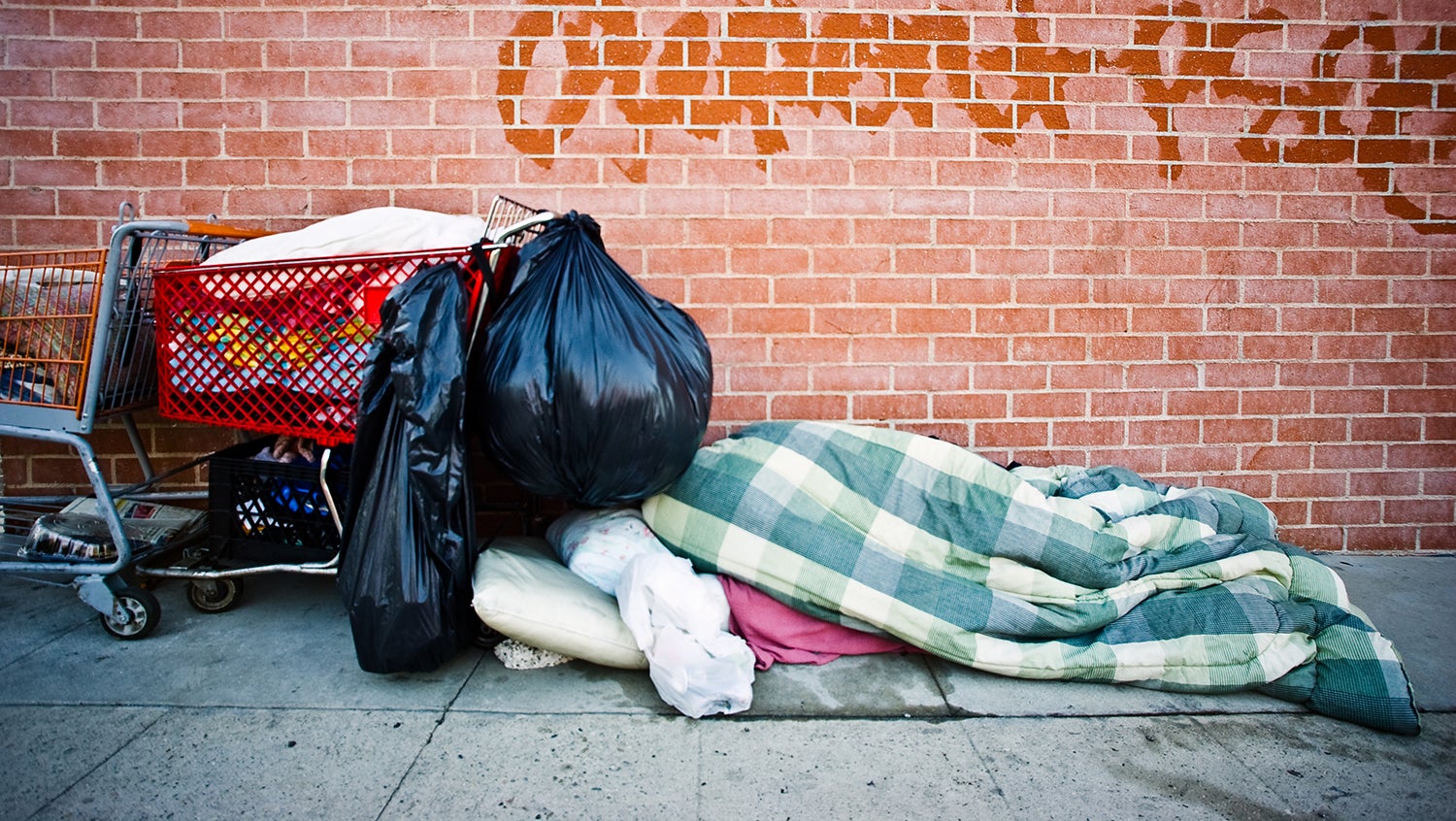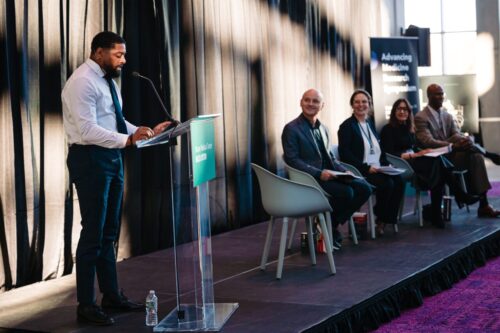For Homeless Service Providers During COVID-19, Collaboration More Important Than Ever
March 18, 2020
By Jenny Fernandez, By Amanda Doyle

Getty Images
A community tasked with serving the underserved will draw on existing strengths to protect their guests from the coronavirus, but experts call for more hands on deck.
Barry Bock didn’t think twice about working through the weekend. The CEO of the Boston Health Care for the Homeless Program (BHCHP) sat down in his office on Saturday morning to 373 emails from hospital and shelter partners and city and state officials — all working overtime to get ahead of COVID-19.
Bock oversees the organization’s partnerships with 30 homeless shelters and two hospitals — Boston Medical Center and Massachusetts General Hospital — to provide medical care to over 11,000 homeless individuals throughout the city. In the midst of the COVID-19 pandemic, those like Bock who care for the nation’s half-million homeless people have reason to be concerned.
Because of existing comorbidities and precarious living situations, homeless individuals are generally at higher risk for contracting COVID-19 than the general population. The resilience of a group who’s endured challenges such as foster care, incarceration, abuse, multi-generational poverty, and chronic homelessness is unmatched, says Bock. Still, the fact remains that circumstances such as limited access to stable housing and nutritious food mean that people experiencing homelessness may be more vulnerable to serious health complications.
“We just need to stay ahead of this,” says Bock, acknowledging that there are unique challenges facing him and his colleagues as the number of coronavirus cases in the state creeps up.
But providers are working diligently to build on existing flu pandemic plans and prepare for any surges before they happen. Thanks to what Bock calls “true collaboration” between mission-focused homeless service providers, the conversations and planning started early on. Without any identified cases of COVID-19 yet within the shelter system, their focus right now is on keeping shelter guests and staff safe by establishing COVID-19 prevention practices and triaging patients when needed.
“There are a lot of things that keep me up at night, but even more that help me keep moving,” he says, a steady voice of confidence and proactivity in uncertain times. At the top of the list is the Boston shelter system’s long history of being open and collaborative — a standing pattern that he hopes has prepared them with the tools and systems to mitigate any outbreak among Boston’s homeless population in the coming weeks.
Open-access efforts to protect the homeless from COVID-19
Implementing interventions with frequently changing information is not easy, but closely following plans from Boston Medical Center, the Massachusetts Department of Health, and federal agencies has helped Bock and his team stay focused and communicate a clear plan back to the shelters.
Taking input from front-line workers is just as important, says Bock, who adds that information sharing is a “two-way street” between community partners. In times of potential crisis, the spirit of collaboration is more important than ever, always keeping the shared goal in mind: putting the guests and patients first.
Of note, BHCHP is in active talks with Pine Street Inn, the largest homeless shelter in Boston, about how they’re adapting their operations to control the spread of infectious disease. There has been a lot of planning around social distancing, and basic precautions like handwashing have been in place across the shelters for weeks now. Lyndia Downie, president and executive director of Pine Street Inn, shares that her team is working creatively within the demands of the system to serve as many people as possible while still meeting social distancing recommendations: beds are just three feet apart, but guests sleep head to toe. BHCHP has adopted this strategy.
Teams are working creatively within the demands of the system to serve as many people as possible while still meeting social distancing recommendations: beds are just three feet apart, but guests sleep head to toe.
And in the very near future, case workers will begin pre-screening all guests before they enter the BHCHP building. Pre-screening starts with a temperature check and two questions recommended by the CDC, including if they’ve had any travel in the past two weeks. Bock admits this question may seem silly for a population that lives well below the poverty level, but he feels that following federal guidelines is essential. Guests are also screened for a new cough, sore throat, or shortness of breath. “New” is an important nuance, as 75% of the 11,000 patients BHCHP serves are smokers with related coughs.
Sharing expertise and quarantine space for a surge
Those who are determined to need additional medical care will be referred to the emergency department at the neighboring Boston Medical Center, which as a safety-net hospital provides universal care regardless of a patient’s insurance status or ability to pay, or to a local respite care center called the McInnis House.
As part of a surge plan, BHCHP’s McInnis House, a 104-bed respite facility, will provide space for homeless individuals who test positive for COVID-19 but don’t require hospitalization. For homeless patients who aren’t able to quarantine, this separate facility allows others to continue to use BCHCP’s resources while maintaining safe distance from people who are sick.
Bock emphasized that collaboration across disciplines has been imperative for bringing these emergency plans to fruition. Partnering with Boston Medical Center, whose admissions are 25% homeless patients, has made everything easier.
“We reached out to BMC over the past several weeks so they could advise us on how to convert McInnis House to care for this new cohort of patients,” says Bock, “and by Friday afternoon, a team of BMC’s infectious disease specialists were doing a walkthrough and offering really comprehensive, state-of-the-art advice.”
Addressing homelessness upstream
Of the 700 people pre-screened during a pilot last week, none has needed further screening. Realistically, that may not be the case for long. Bock worries that despite everyone’s hard work and collaboration, there won’t be enough external support needed to accomplish their goals. He worries about the scarcity of tests and the financial impact COVID-19 will inevitably have on homeless service providers across Boston.
Caretaking for the homeless population extends well beyond the walls and responsibility of the shelter system. Staying ahead of this and future infectious diseases will require greater collaboration between health partners, agencies, and policy makers to rethink broader arenas — like education, economic mobility, and behavioral health — that are at the root of homelessness.


